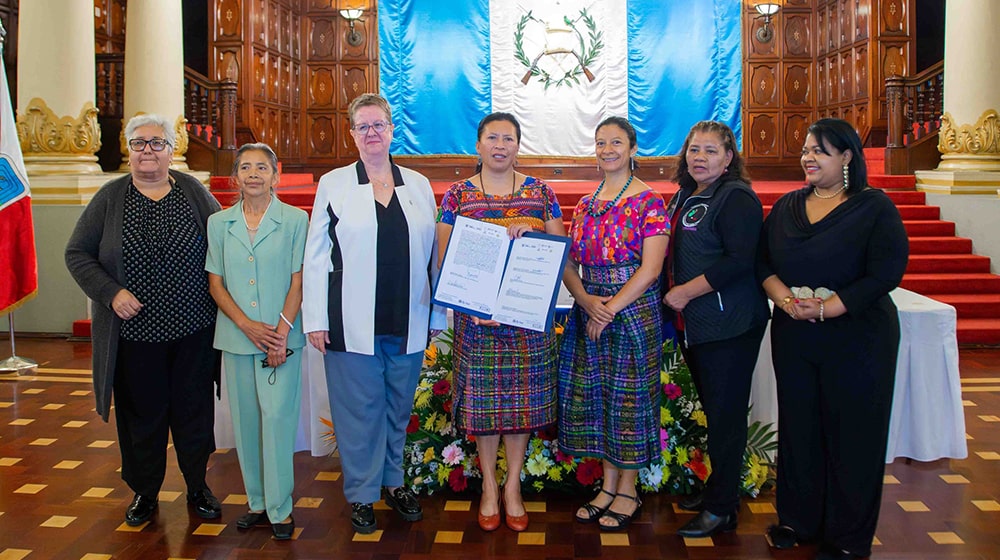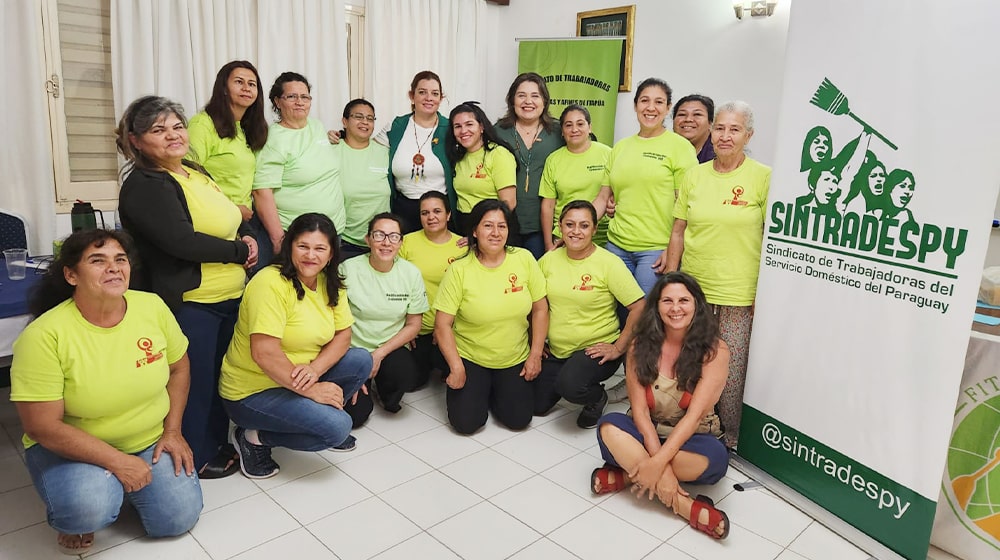
Two months after a mission from the IDWF visited Honduras, the Assembly of the Economic and Social Council (CES) approved the Technical Opinion of ILO Convention 189, a preliminary step for its consideration in the National Congress. This tripartite body, representing the government sector, the employer sector, and the domestic workers’ union SINTRAHO, is crucial for leveraging the ratification of C189.
As a result of social dialogue and political advocacy actions jointly promoted by the delegation of the International Domestic Workers Federation (IDWF) that visited Honduras in February and the National Domestic Workers Union (Sindicato Nacional de Trabajadoras y Trabajadores del Hogar – SINTRAHO), members of the cabinet of ministers and the National Congress have fulfilled their commitment to promote the ratification of Convention 189 by the Honduran state.
“After so many years of invisibility, the authorities are demonstrating that they have the political will to ratify the convention. Now, all expectations are placed on the congressmen. More than 130,000 domestic workers place our trust in them and hope that they grant us that right this May Day,”
celebrates Silma Pérez, SINTRAHO’s President.
The support gained by the leaders of the IDWF and SINTRAHO from key actors such as the Vice Minister of Labor, Emilson Motiño, the Minister of Women, Doris García Paredes, and a group of legislators led by Congresswoman Silvia Ayala (Partido Libre) and Congressman Ernesto Lezama (Partido Liberal), has made it possible for a debate that had remained shelved for more than a decade to be reactivated in just sixty days.
Once C189 is ratified, Honduras should adjust its national legislation to this instrument, a process in which the contributions and representation of domestic workers must necessarily be included. For Silma Pérez, “even stronger work is coming, which is to achieve the effective implementation of the convention, something that must be done with the participation of domestic workers and requires the support of trade union confederations”.
According to the ILO, of the more than 135,000 people engaged in paid domestic work in Honduras, 87% are women, most of whom are heads of household. Despite representing 8.4% of female employment in the country, these workers face extremely precarious working conditions: 96.3% of them do not have access to social security, only 3.5% receive the minimum wage – while the remaining 96.5% receive half the average income of other workers – and 51.3% endure strenuous working hours.
In Honduras, domestic work is not regulated and does not have a minimum wage established by law. Additionally, the Labor Code leaves it to the discretion of employers to determine the conditions under which this activity is carried out, which encourages labor exploitation, violence, harassment, and discriminatory treatment towards domestic workers, perpetuating their situation of poverty and vulnerability.
ILO Convention 189, adopted in June 2011 and ratified by 18 countries in Latin America, sets basic standards that ensure decent work for domestic workers, equating their rights with those of other workers. Ratifying C189 means recognizing the social and economic value of paid domestic work and dignifying those who perform it. Honduras is now facing a unique opportunity to do justice to the women who constitute the backbone of its society.







